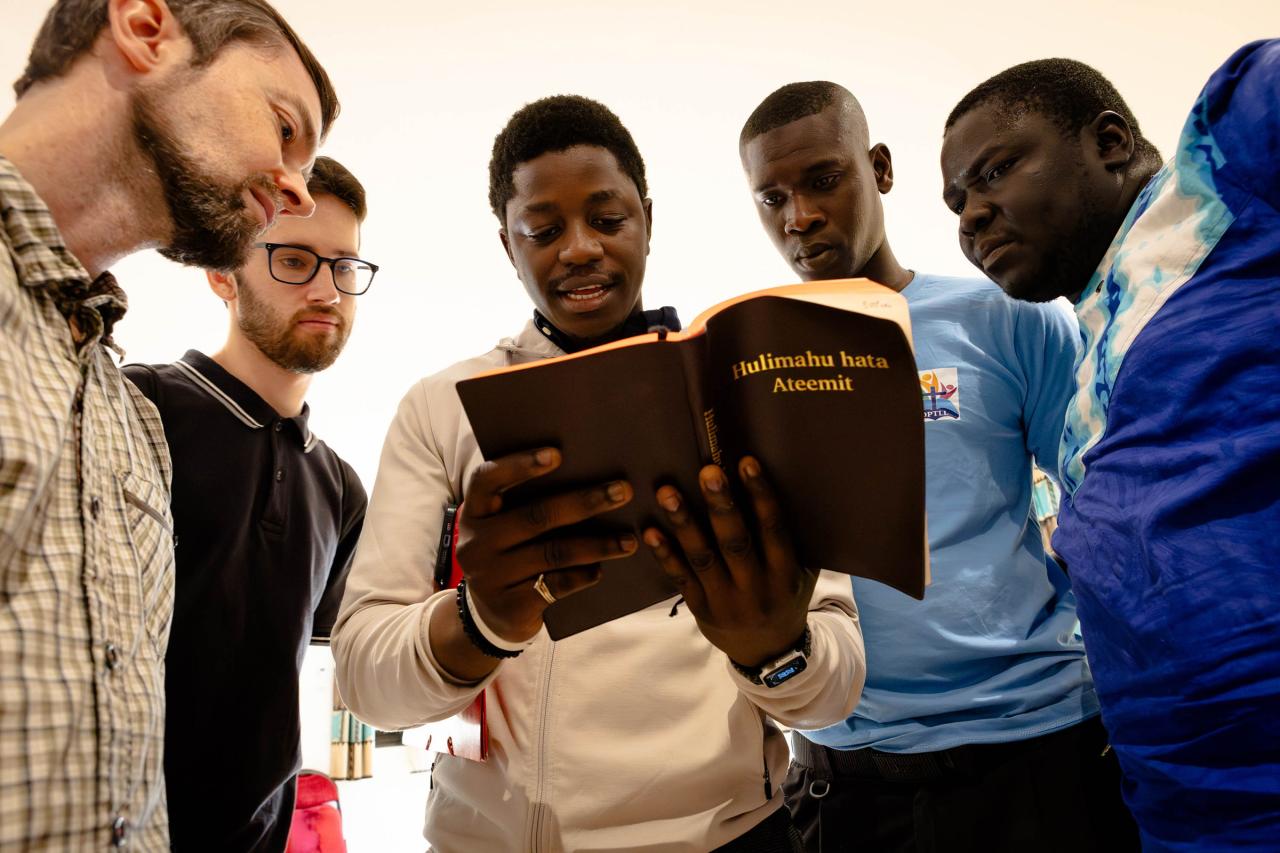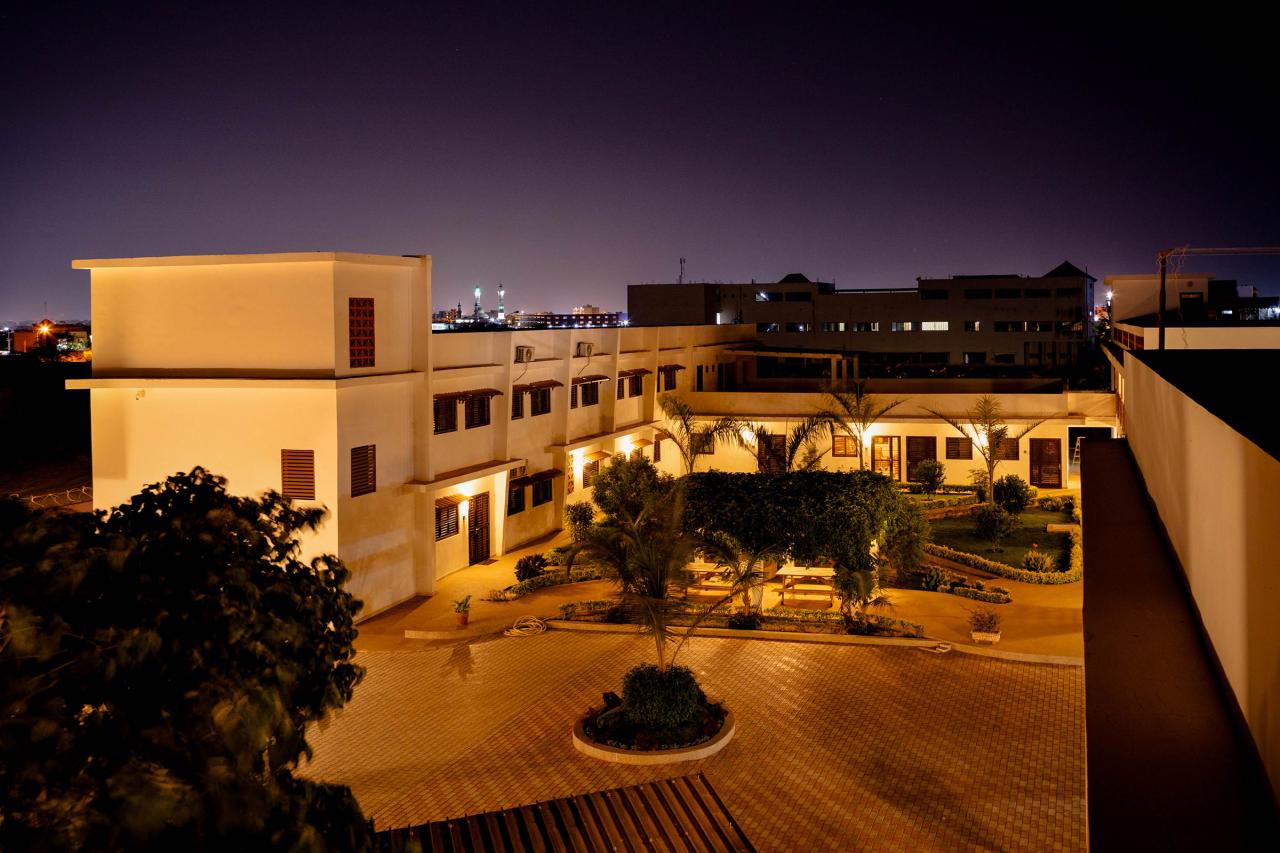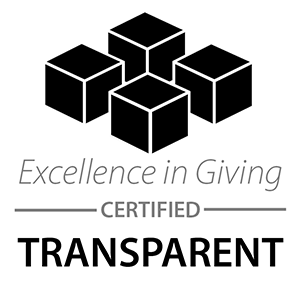We cannot know, this side of heaven, how many people faithfully carried the good news of Christ before it reached our own ears.
It moved through written text and oral tradition, stories of brokenness and healing, faith and doubt, all awakening us to the hope found only in Christ.
“We desire for God’s message to be known and understood by people in whatever language they speak”
— David Wilkinson, Director SIL Senegal
Watch this video with French subtitles
While many of us heard it first in our heart language, the gospel began its journey over 2000 years ago in a tongue most of us will never speak. So that we might understand, at some point a passionate believer undertook the arduous task of translation. That passionate and arduous work is the heart of SIL Senegal.
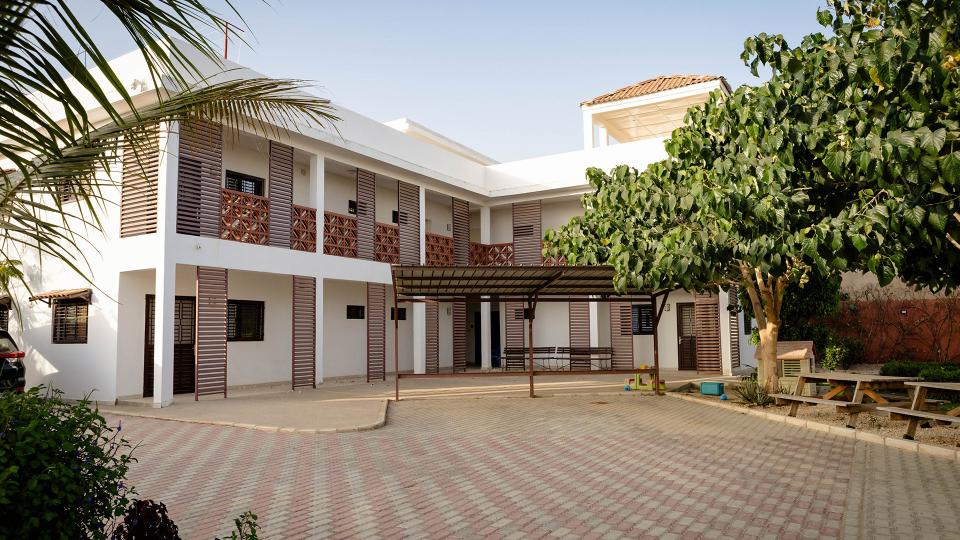
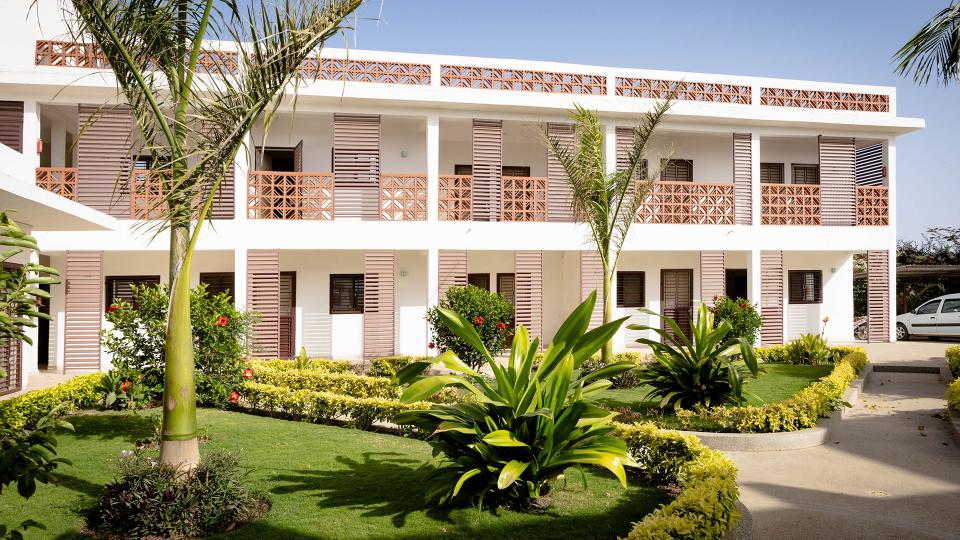
My visit to the new SIL campus in Thies, Senegal coincided with Ramadan, one of the most holy festivals for Muslims. Fasting during the daylight hours means streets are quiet and many business closed.
Situated at the end of a paved road in the suburbs, the compound sits amid residential surroundings that are even quieter during this month. The buildings are painted a crisp white and lush foliage dominates the courtyard. It is quiet here too, because Bible translation requires such concentration and focus.
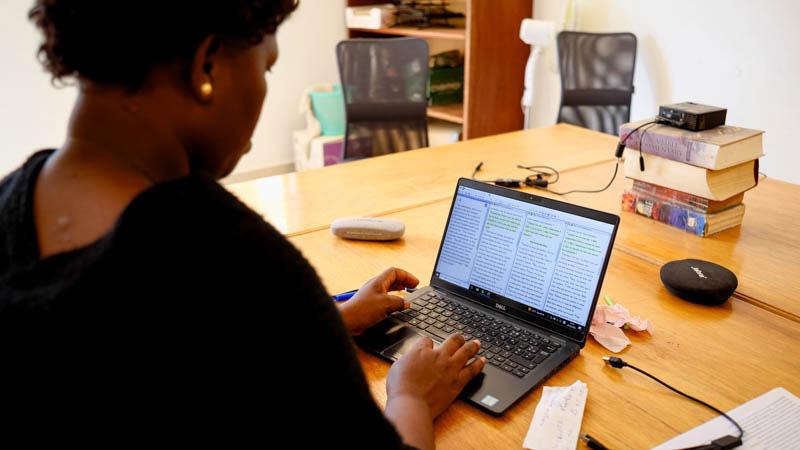
SIL’s former space was in the noisy industrial zone of Dakar where amongst their warehouse-style offices they even had a printshop for printing literature.
But as smartphones allowed more people to access the Bible in digital format, they desired to expand their ministry of carrying the gospel through audio.
“The idea came about to come to Thiès to have this space and freedom, as opposed to being crammed in Dakar. It was also to work with the other ministries who are here.”
— Sebastien Diedhiou, SIL Office Manager
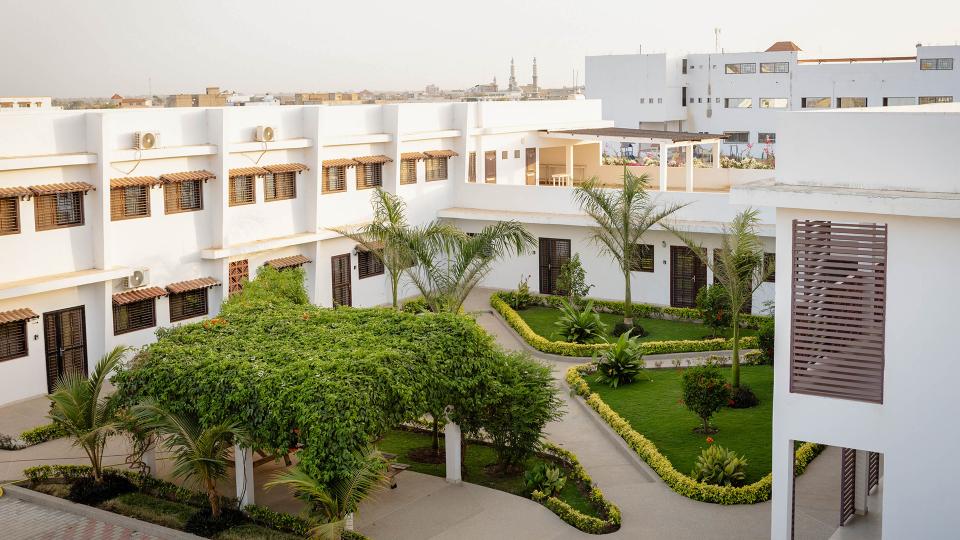
SIL staff also wanted a campus home that would accommodate working in partnership with other carriers of the gospel.
Another good work of SIL is the increase of literacy. They believe that when people have a strong command of their language, it reinforces their cultural identity and strengthens the community as a whole.
The city of Thies is home to many Christian ministries and SIL desired to connect with them more closely. Finding people with the skills to translate the Bible from French into one of the 39 languages of Senegal is not easy, but local churches can offer those connections.
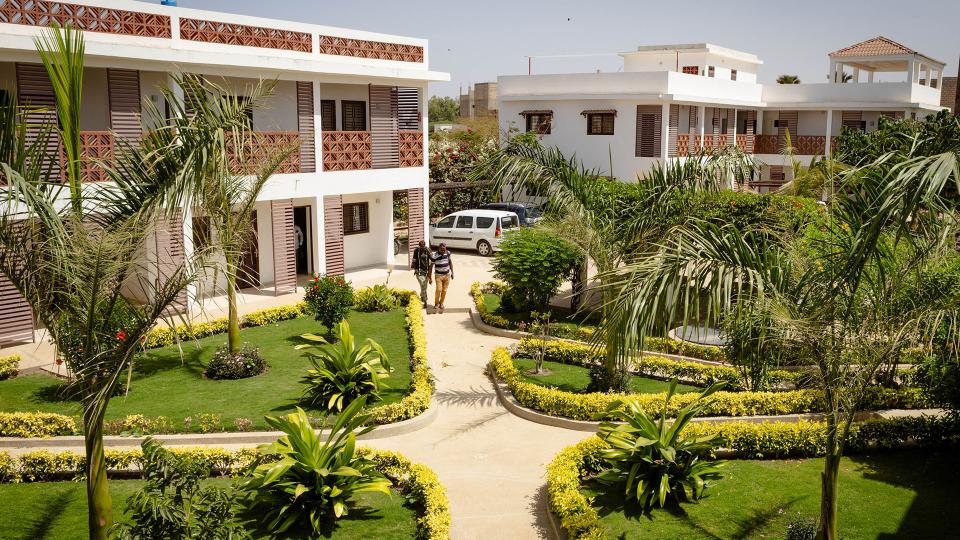
When EMI Senegal became involved in 2021, the hope was to find an existing structure to renovate, but building new was more cost-effective.
Starting fresh allowed architects to design spaces for collaboration and the more secluded and quiet rooms the translators needed.
That desire to invite other ministries into the space presented a challenge to EMI’s design team. There was no good way to predict exactly what needs another ministry might have. Architects needed to design common areas that would draw people together. Both EMI and SIL rose to the challenge.
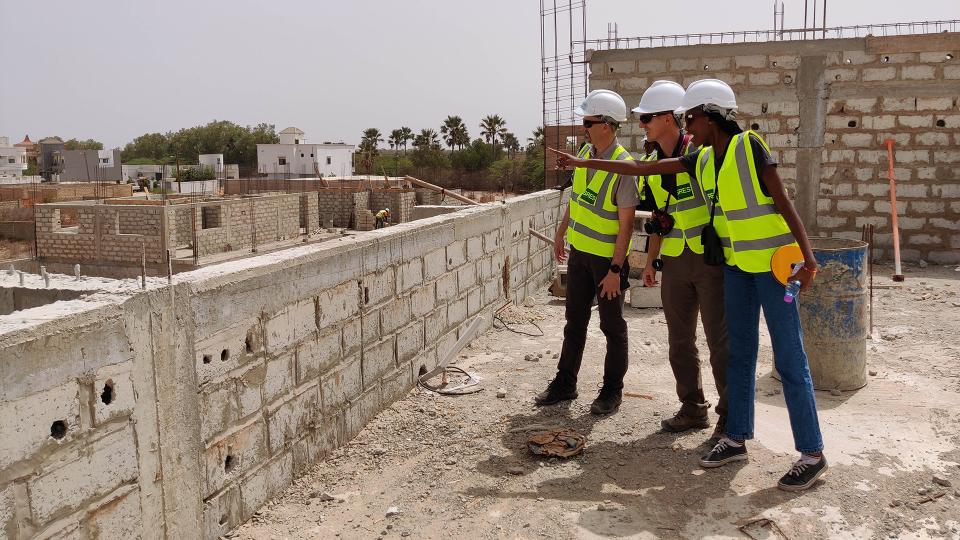
As is often the case, ministry staff had no experience with designing a new campus, but EMI staff always enjoy coming alongside to help them understand the process and become champions of their project.
“One of my favorite aspects of the project has been working with SIL to help them understand the development process.”
— Andrew Jensen, EMI Senegal Director
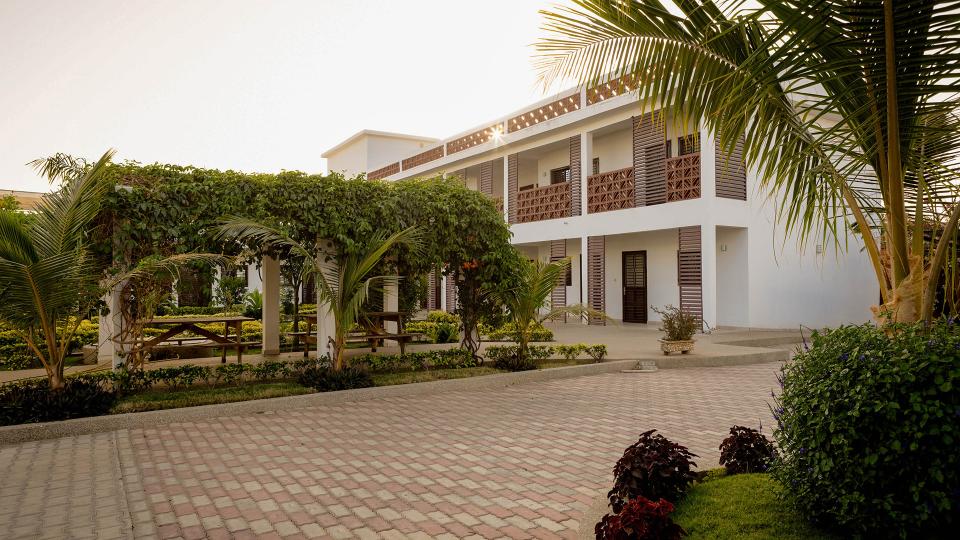
The peace and beauty of the various spaces invite both gathering and rest.
A pergola has shaded seating space for informal meetings outside. The library houses hundreds of books for reference and language fluency practice. A recording studio allows technicians to transfer the Bible and other materials into digital formats, carrying the gospel more broadly.
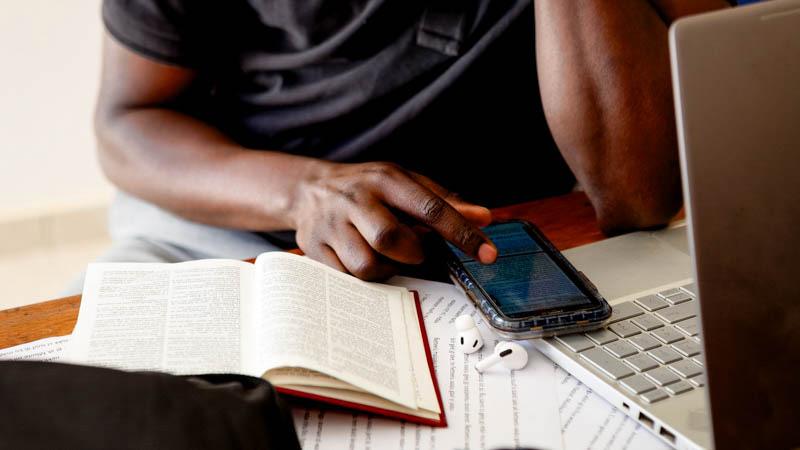
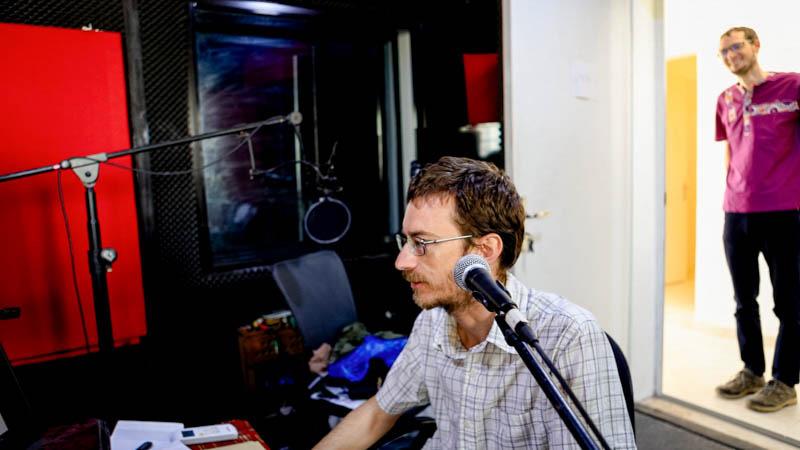
Day-to-day activities at SIL, other than Bible translation, include orthography and language analysis, prayer meetings, audio recordings, and occasional conferences.
Coffee time and lunches see all staff and visitors gathered in one dining room for relaxed conversation and connection..
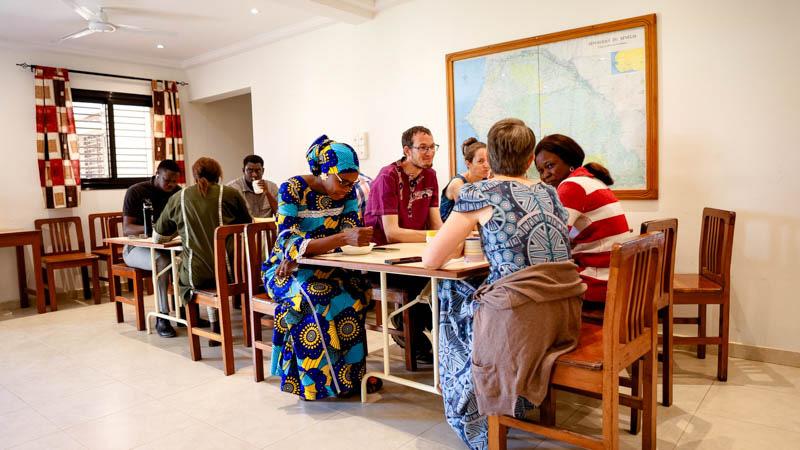
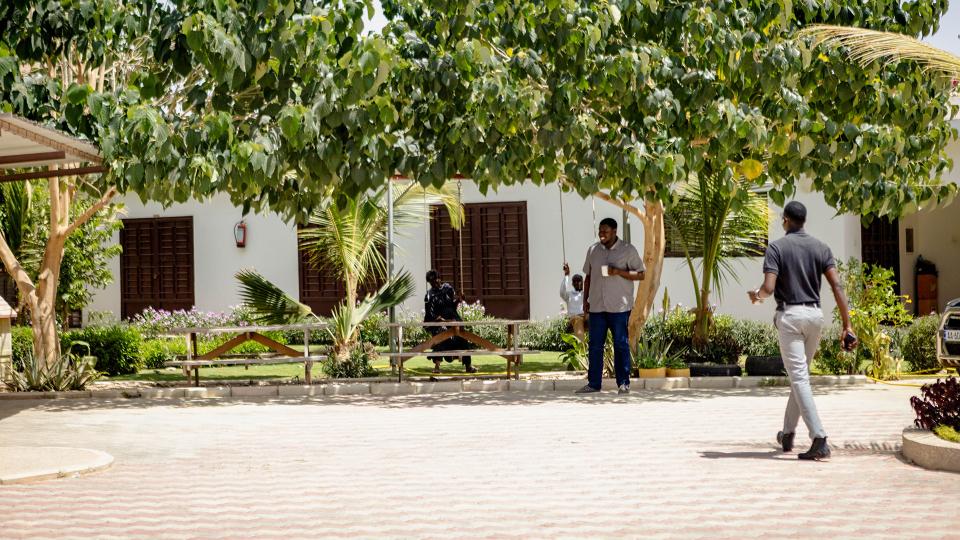
At any given meal time in the common dining space, one might hear four or five different languages being spoken; Wolof, Diola, Pulaar, and Serer are just a few of the “majority” languages spoken by a few million people. On the other hand, the minority languages might only have 20,000 speakers each and SIL seeks to value languages regardless of size.
John Agee, EMI Senegal Deputy Director agrees, “There is a desire among the Senegalese people to listen, but if a holy text isn’t in one’s heart language it’s much harder to connect with it, and that creates an obstacle.
“What better than the Word of God to minister to people on a deep level, but it goes that much deeper when it is in your heart language.”
As the sun sets on my time in Thies, the only sounds are the breeze rustling the bougainvillea vines and a neighbor’s music. From the rooftop terrace I can see the surrounding homes where the people inside are likely breaking their fast and saying prayers.
I lift a prayer of my own, for the work of SIL, EMI, and for Senegal, that these carriers of the gospel would be heard clearly, and the Word of God would take root.
